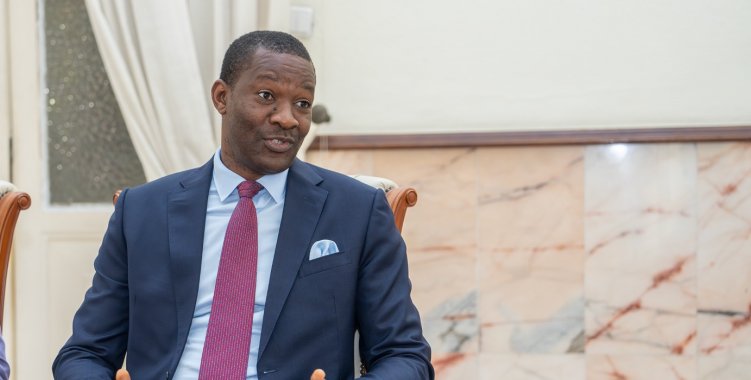José Luís Domingos spoke to journalists in Luanda, where he took stock of the first semester of the new administration and highlighted ongoing projects, presented the main concerns of the class and launched a new project for dialogue with justice in partnership with the Association of Judges of Angola (ACT).
Asked about a recent decision by the Supreme Court that went against the Constitutional Court and decided to maintain the sentence in the case known as "500 million", which has among the defendants a son of former President José Eduardo dos Santos, he refused to comment on the process specifically, but highlighted the need to reform justice.
"These situations demonstrate that it is necessary to rethink the justice model, which is why a reform of our judicial power is fundamental and this is what the Order has defended", he highlighted.
Last week, after the Constitutional Court declared the unconstitutionality of the ruling that sentenced José Filomeno dos Santos "Zenu" and three other defendants for violating the principles of legality and contradictory principles and a fair trial, the Supreme Court decided to maintain the conviction, for concluding that "the unconstitutionalities raised in the appeal to the Constitutional Court (TC) are duly expunged".
"It is necessary that the image that is conveyed to the people – that it is through them that justice is administered – is one of credible courts, harmonized with the rule of law, courts that guarantee the citizen complete confidence that they are serious and that the decisions must be accepted", commented José Luís Domingos.
The president also stressed that "there are thousands of Angolans illegally detained", with excessive preventive detention, which society does not care about, warning: "We cannot remember justice only when there are media cases".
José Luís Domingos spoke of the "very high" demand for the OAA from citizens seeking legal sponsorship, stating that lawyers have not received the funds to which they would be entitled from the Ministry of Justice, which "is making it very difficult" for disadvantaged people have access to justice, and asked the executive to find "swift measures" so that the Order can fulfill its duty.
"We also understand that it is necessary to rethink the Angolan justice model, giving priority to extrajudicial mechanisms in resolving disputes", continued the person responsible, considering that a "more community" justice can mitigate the search for judicial solutions.
José Luís Domingos said that the management's objectives include the dignification of lawyers and the Order and, "above all, having a very active and participatory say in the implementation of an increasingly robust rule of law in Angola, of which the country so much is needed".
The solution, he declared, involves "strengthening institutions, so that they are stronger than those who direct them and that the premise is that nothing is above the law".
"For this to happen, we must have courts absolutely focused on their mission of implementing the rule of law", he added.
Regarding the project with AJA, he said that it should end with a clear proposal on the assumptions that it is necessary to "attack" to improve Angolan justice, namely strengthening the independence of the judiciary, reducing the intervention of the judicial executive branch and improving efficiency for reduce procedural delays.







